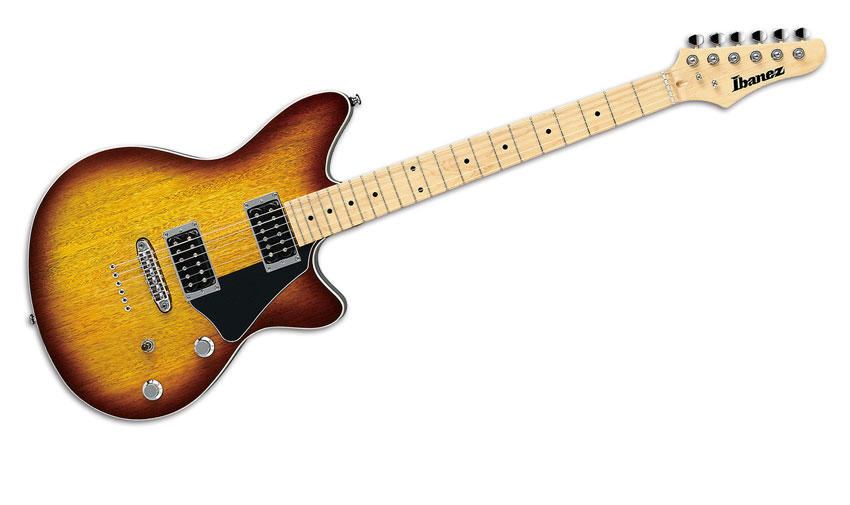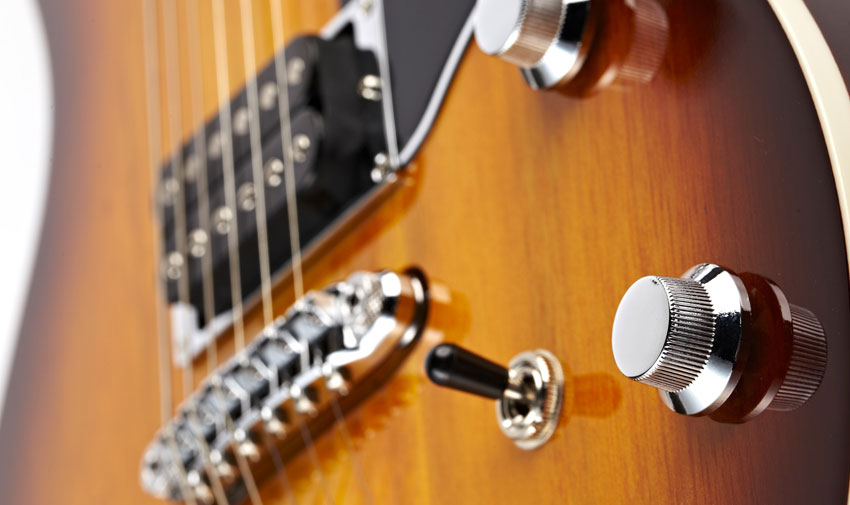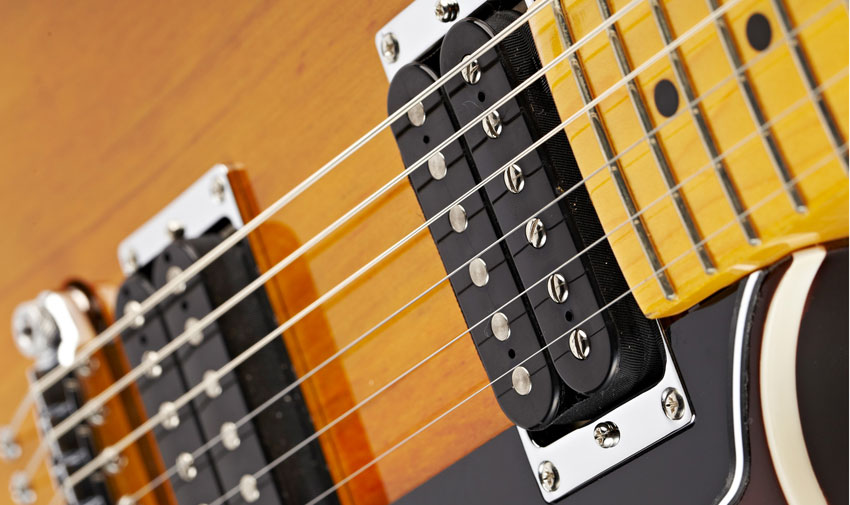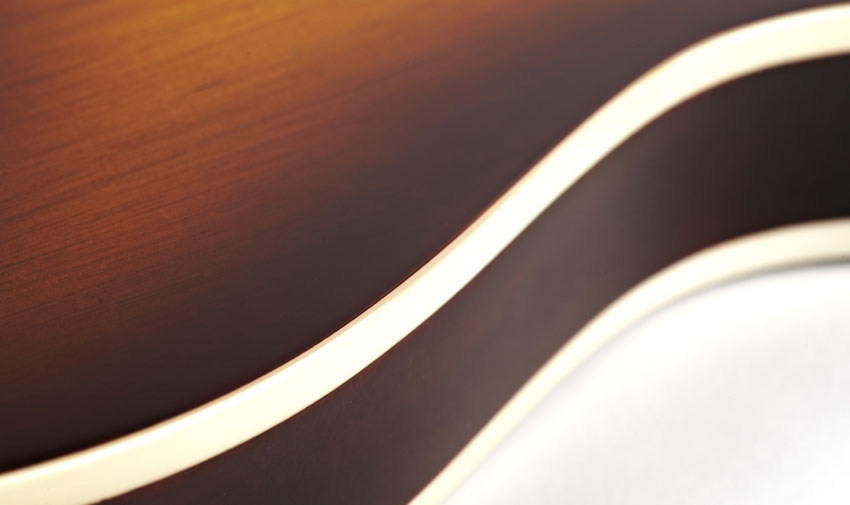MusicRadar Verdict
If you're after an axe that's off the beaten track in both looks and sounds, a Roadcore makes for a worthy travelling companion.
Pros
- +
Excellent value for money. Attractive design. Nice neck.
Cons
- -
We found a few (minor) build issues.
MusicRadar's got your back

Ibanez Roadcore RC320M

Bridge

Pickups

Finish
Despite its retro aesthetic, the Roadcore RC320M is part of an entirely new line from Ibanez. Don't let that slim mahogany body and funky offset waist fool you, nor the UFO-style knobs, classy double binding or cool aged finish: this is a modern player's guitar, built for the road.
"Despite appearances, this is a modern player's guitar, built for the road"
Those old-school looks have found favour with rock's new breed: Roadcore players include The Blackout's James Davies, while You Me At Six's Chris Miller has his own Roadcore-inspired signature model, the CMM1.
However, the main branch of the RC family tree is composed of the RC320, which comes in Black and Transparent Cherry finishes, and the RC320M we have here, which comes in Brown Burst only - that 'M' in the model name represents the maple fretboard, as opposed to the RC320's rosewood 'board.
What these Roadcores have in common is a pair of custom-designed Core-Tone pickups, as well as Ibanez's Tight-Tune bridge, which promises improved transfer of string vibration and supreme tuning stability.
The slimline body makes for a light, comfortable shape, sitting or standing, while that Tight-Tune bridge inspires confidence - our review model's tuning barely strayed during our time with it, despite huge bends and wide vibrato.
The chunky, gloss-finished neck feels good in the hand, too - sure, it isn't a speed machine made for anyone used to burning up lightning-quick unfinished Wizard necks, but Ibanez already has plenty of guitars for that.
The tones emanating from the Core-Tone pickups solidify the Roadcore's position: rather than super-high-output humbuckers, these 'buckers have a mellower output that's almost P-90ish in tonality.
Want all the hottest music and gear news, reviews, deals, features and more, direct to your inbox? Sign up here.
There's a real growl to the neck and bridge pickups that suits mid-gain jangly garage-rock and punk, and although they can do metal and shred at a push, they're not quite fierce enough to make 'em your number-one choice.
The middle position gets you pretty close to a Stratty mixed pickup sound, though, and not only proves that you don't always need a coil-split to get your twang on, but also stakes this guitar's claim for versatility at the lower end of the gain spectrum.
The Roadcore is an interesting route for Ibanez to take, and it's great value for money - only a slightly untidy nut and a loose fret end on our review model reminded us of the sub-£350 price tag.
Mike is Editor-in-Chief of GuitarWorld.com, in addition to being an offset fiend and recovering pedal addict. He has a master's degree in journalism, and has spent the past decade writing and editing for guitar publications including MusicRadar, Total Guitar and Guitarist, as well as a decade-and-a-half performing in bands of variable genre (and quality). In his free time, you'll find him making progressive instrumental rock under the nom de plume Maebe.
